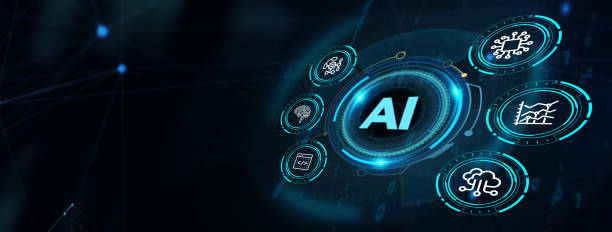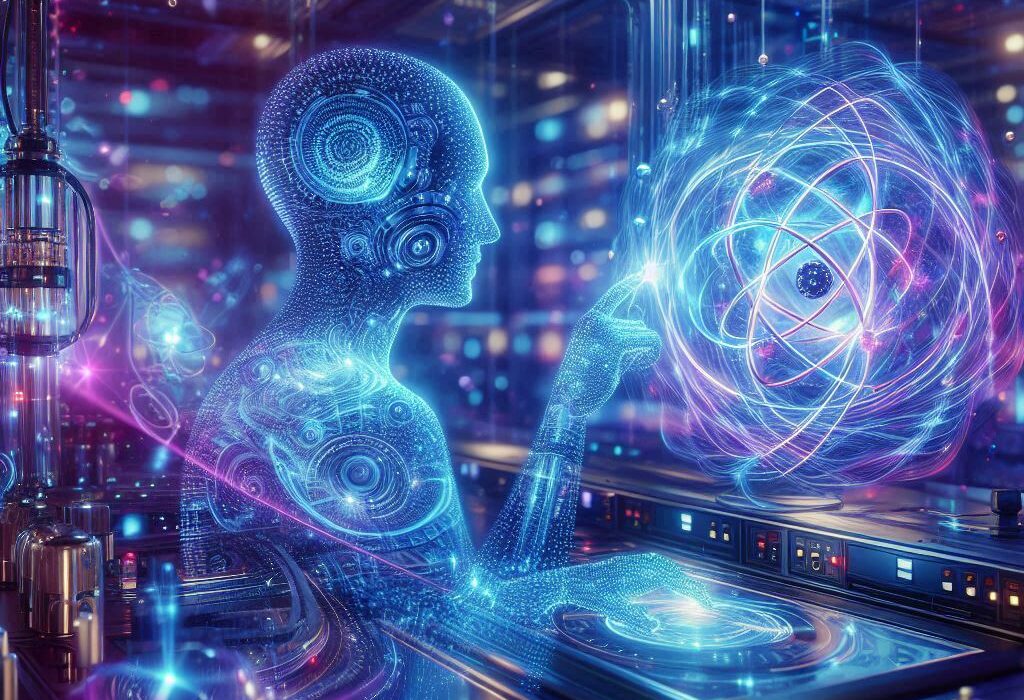The rapid rise of artificial intelligence (AI) and automation represents one of the most transformative developments in human history. These technologies are revolutionizing how societies function, how economies operate, and even how individuals perceive themselves. Artificial intelligence enables machines to learn, reason, and make decisions that once required human cognition, while automation extends this capability to perform complex tasks with speed and precision beyond human limits. Together, they are reshaping the global landscape—from manufacturing and healthcare to education, transportation, and governance.
However, alongside these remarkable benefits comes a growing set of ethical challenges. The same systems that can optimize production or enhance decision-making can also perpetuate inequality, erode privacy, displace workers, and make critical errors with catastrophic consequences. The ethics of AI and automation therefore concern not only the design and implementation of these technologies but also their broader societal implications.
Understanding and addressing these ethical dimensions requires interdisciplinary insight, combining philosophy, computer science, law, economics, and social science. Ethical reflection ensures that progress in artificial intelligence aligns with human values, justice, and dignity. Without this reflection, the promise of AI could be overshadowed by harm and mistrust.
The Evolution of Artificial Intelligence and Automation
Artificial intelligence, as a field, emerged in the mid-20th century when researchers such as Alan Turing, John McCarthy, and Marvin Minsky began exploring whether machines could replicate human intelligence. Initially, AI was limited to symbolic reasoning and problem-solving tasks. Over the decades, advancements in computational power, data availability, and machine learning algorithms have vastly expanded the scope of AI systems. Today, AI powers everything from voice assistants and autonomous vehicles to complex predictive models used in medicine, finance, and climate research.
Automation, though older in concept, has evolved in tandem with AI. Early forms of automation relied on mechanical processes and pre-programmed instructions, such as in industrial assembly lines. The integration of AI has made automation increasingly adaptive, enabling machines to learn from experience and adjust to new conditions without explicit reprogramming. This “intelligent automation” is now transforming industries by improving efficiency, reducing costs, and enhancing safety.
Despite these benefits, this convergence has raised fundamental ethical questions. As AI systems gain autonomy, the boundaries between human decision-making and machine control blur. Who bears responsibility for decisions made by intelligent systems? How can societies ensure that the distribution of benefits and burdens remains fair? And what happens to human purpose when machines perform the majority of cognitive and physical labor?
Ethical Frameworks in Artificial Intelligence
Ethics in artificial intelligence is concerned with ensuring that AI systems are designed and used in ways that align with moral principles and social values. Several philosophical frameworks help analyze ethical issues in this domain. Utilitarian ethics evaluates AI based on the consequences it produces—whether it maximizes overall happiness or welfare. Deontological ethics, rooted in duty and moral rules, focuses on whether AI actions respect rights and obligations regardless of outcomes. Virtue ethics, meanwhile, emphasizes the moral character of those developing and deploying AI, asking whether their intentions promote human flourishing and integrity.
In practice, AI ethics encompasses both normative and applied dimensions. Normative ethics defines what is right or wrong in principle, while applied ethics translates these principles into concrete guidelines for technology design and governance. Key principles commonly cited in AI ethics include beneficence (promoting well-being), nonmaleficence (avoiding harm), autonomy (respecting individual freedom), justice (ensuring fairness), and explicability (transparency and accountability).
The challenge lies in operationalizing these principles. Ethical ideals often conflict when applied to real-world technologies. For instance, increasing transparency might compromise privacy, while maximizing efficiency might undermine fairness. Therefore, AI ethics requires balancing competing values through thoughtful design, regulation, and continuous oversight.
The Question of Autonomy and Human Control
One of the central ethical concerns in AI is the issue of autonomy. As machines gain the ability to make independent decisions, the role of human oversight becomes increasingly complex. Autonomous systems—such as self-driving cars, military drones, and financial trading algorithms—operate in dynamic environments where immediate human intervention may be impossible. This autonomy introduces moral uncertainty: can a machine truly be responsible for its actions, or does accountability ultimately rest with its creators and operators?
Human control is often framed in terms of “meaningful human oversight.” This concept suggests that humans must retain the capacity to understand, intervene in, and override AI decisions when necessary. However, as AI systems become more complex, even experts may struggle to comprehend their inner workings. Deep learning models, for example, operate through layers of computation that produce results without clear interpretability—a phenomenon known as the “black box problem.”
Ethical AI design therefore emphasizes the need for transparency and explainability. Systems must be built in ways that allow humans to trace the reasoning behind automated decisions. This is especially critical in high-stakes domains such as healthcare, criminal justice, and finance, where opaque algorithms can lead to unjust or harmful outcomes. Maintaining human control also means setting clear boundaries for machine autonomy, ensuring that AI supports rather than replaces human judgment in matters of moral and social consequence.
Bias, Fairness, and Discrimination
AI systems learn from data, and data reflect the world in which they are collected. Unfortunately, this world is not free from bias or inequality. When biased data are used to train algorithms, the resulting systems can perpetuate or even amplify existing social injustices. Examples abound: facial recognition technologies that perform poorly on darker skin tones, hiring algorithms that discriminate against women, and predictive policing systems that unfairly target marginalized communities.
The ethical challenge of bias in AI is twofold. First, developers must identify and mitigate biases during the design and training process. This involves careful data selection, algorithmic auditing, and inclusion of diverse perspectives in development teams. Second, societies must consider the broader systemic inequalities that feed into AI systems. Technology cannot be truly fair if the data it learns from reflect structural discrimination.
Fairness in AI also extends beyond statistical parity. It involves recognizing context, history, and power dynamics. An algorithm may appear neutral mathematically but still reinforce harmful outcomes if it ignores social realities. Ethical AI therefore requires ongoing vigilance, transparency, and accountability to ensure that technology promotes equity rather than injustice.
Privacy and Surveillance in the Age of Automation
Another profound ethical concern arises from the intersection of AI, automation, and data privacy. Modern AI systems rely on vast quantities of data to function effectively. This data often includes personal information—ranging from online behavior and biometric identifiers to health records and location histories. While data-driven intelligence can yield valuable insights, it also enables unprecedented levels of surveillance and control.
The rise of automated surveillance technologies has sparked intense debate about the balance between security and privacy. Governments and corporations increasingly deploy AI-powered systems for monitoring public spaces, analyzing social media, and predicting behavior. Such applications can improve safety and efficiency but also risk creating surveillance states where individual autonomy is eroded.
Ethically, privacy is not merely a personal preference but a fundamental human right that safeguards dignity and freedom. Violations of privacy can lead to discrimination, manipulation, and loss of trust in institutions. Ensuring privacy in AI requires strict data protection measures, transparency in data collection, and mechanisms for consent and control. Moreover, societies must confront the ethical implications of technologies that blur the boundary between private and public life, questioning whether convenience and security justify the cost of constant surveillance.
The Impact of Automation on Employment and Human Dignity
Automation has long raised concerns about its impact on labor. From the Industrial Revolution to the present, technological innovation has displaced certain forms of work while creating others. The rise of AI-driven automation intensifies this dynamic by enabling machines to perform tasks once thought to require human intelligence—such as driving, diagnosing diseases, or analyzing legal documents.
The ethical issue extends beyond job loss to encompass questions of dignity, purpose, and justice. Work is not only a means of economic survival but also a source of identity and meaning. When automation renders human labor obsolete, individuals may experience a loss of self-worth and social belonging. At a societal level, widespread automation risks deepening economic inequality as capital owners benefit disproportionately from technological productivity while workers face displacement.
Addressing these ethical challenges requires proactive policy and moral reflection. Solutions may include retraining programs, universal basic income, or redesigning work to emphasize creativity, empathy, and human interaction—qualities machines cannot easily replicate. Ethically responsible automation should aim to enhance human well-being rather than undermine it, fostering a future where technology empowers rather than replaces human potential.
Accountability and Moral Responsibility
When AI systems cause harm—whether through bias, malfunction, or misuse—questions of responsibility inevitably arise. Who should be held accountable: the programmer, the user, the manufacturer, or the machine itself? Traditional frameworks of moral responsibility rely on human intention and agency, but these concepts become blurred when decisions are made by autonomous systems.
Ethical governance of AI requires establishing clear lines of accountability. Developers must be responsible for ensuring that systems are safe, transparent, and aligned with ethical principles. Organizations deploying AI must monitor its impact and intervene when necessary. Legal systems, meanwhile, must evolve to accommodate new forms of responsibility that reflect the distributed nature of AI decision-making.
Some ethicists argue that AI systems should themselves be treated as moral agents if they exhibit autonomous reasoning. However, most scholars reject this idea, emphasizing that moral accountability presupposes consciousness, intention, and understanding—qualities that machines do not possess. Instead, moral responsibility remains a human obligation, demanding careful stewardship over the technologies we create and deploy.
Weaponization and the Ethics of Autonomous Systems
Perhaps the most alarming ethical issue in AI is its militarization. Autonomous weapons—machines capable of identifying and attacking targets without human intervention—pose unprecedented moral and strategic risks. Proponents argue that such systems could reduce human casualties by removing soldiers from the battlefield. Critics warn that delegating life-and-death decisions to machines undermines moral accountability and violates international humanitarian principles.
The ethical debate centers on the concept of meaningful human control. Can a machine truly distinguish combatants from civilians, or evaluate proportionality in the chaos of war? Even with sophisticated algorithms, errors are inevitable, and accountability for such errors is unclear. Furthermore, the proliferation of autonomous weapons could trigger an AI arms race, destabilizing global security.
Many ethicists and policymakers advocate for international treaties banning or strictly regulating lethal autonomous weapons. The moral imperative is clear: no machine should be granted the power to decide who lives and who dies. The future of AI in warfare will test humanity’s capacity to prioritize ethical restraint over technological ambition.
Transparency, Explainability, and Trust
Trust is the foundation upon which ethical AI must rest. For individuals and societies to accept AI-driven decisions, they must understand how and why those decisions are made. Yet, as AI systems grow more complex, their internal logic often becomes opaque even to their creators. This opacity undermines accountability, fairness, and trust.
Explainability, therefore, is an ethical necessity. It refers to the ability of an AI system to provide understandable justifications for its outputs. In medicine, for example, an AI diagnostic tool must explain why it recommends a particular treatment. In finance, an algorithm denying a loan should clarify its reasoning. Without such transparency, users cannot challenge or correct unjust outcomes.
Developing explainable AI requires balancing interpretability with performance. Some of the most powerful machine learning models, such as deep neural networks, achieve high accuracy precisely because of their complexity. Ethically, designers must decide how much opacity is acceptable and how to communicate uncertainty to users. Ultimately, transparency fosters trust and ensures that AI remains aligned with human values.
Global Inequality and Access to AI
The benefits of AI and automation are unevenly distributed across the globe. Wealthy nations and corporations dominate AI research and deployment, while developing regions often lack the infrastructure and expertise to participate fully. This imbalance risks deepening global inequality, as countries without access to AI fall further behind in economic competitiveness, education, and healthcare.
Ethical reflection must therefore extend beyond national borders. AI governance should prioritize inclusivity, ensuring that technological progress benefits humanity as a whole. Open-source initiatives, international cooperation, and equitable data sharing can help democratize AI development. Moreover, attention must be paid to cultural diversity and local contexts; ethical principles should be globally applicable yet sensitive to different values and traditions.
Global inequality also manifests in digital labor exploitation. Many AI systems rely on underpaid workers to label data or moderate content under difficult conditions. Ethical AI requires recognizing and valuing these invisible contributions, ensuring fair labor practices across the supply chain of technology development.
The Role of Regulation and Policy
Ethical intentions alone are insufficient to guide AI development; robust governance frameworks are essential. Governments, institutions, and international organizations must establish laws and standards that ensure accountability, fairness, and safety in AI deployment. Regulation should not stifle innovation but channel it toward socially beneficial ends.
Several regions have begun implementing ethical AI policies. The European Union’s AI Act, for instance, proposes a risk-based approach that categorizes AI systems by their potential for harm and imposes corresponding safeguards. Similar initiatives are emerging worldwide, emphasizing transparency, human oversight, and data protection.
However, effective governance requires collaboration among diverse stakeholders: governments, corporations, civil society, and academia. It must also anticipate rapid technological evolution, remaining adaptable as new ethical challenges emerge. Ultimately, policy should reflect a shared commitment to using AI in ways that promote justice, sustainability, and human flourishing.
The Environmental Ethics of Automation
Beyond social and economic concerns, AI and automation raise environmental questions. Training large AI models consumes massive amounts of energy, contributing to carbon emissions. Automated production systems may increase resource extraction and waste if not managed responsibly. Conversely, AI can also aid environmental protection through optimized energy systems, climate modeling, and sustainable agriculture.
Ethical stewardship of AI must therefore include ecological considerations. Developers and policymakers should prioritize energy-efficient algorithms, renewable power sources, and life-cycle assessments of AI infrastructure. Technology should serve not only human interests but also the broader planetary ecosystem upon which life depends.
Human Identity and the Meaning of Intelligence
Perhaps the most profound ethical issue posed by AI is existential rather than practical. As machines become increasingly capable of performing cognitive tasks, humanity is compelled to reconsider what it means to be intelligent, creative, and conscious. If a machine can compose music, write essays, or diagnose illness, what distinguishes human thought from artificial computation?
This question touches on the essence of human identity. Intelligence in humans is not merely problem-solving ability but includes emotion, empathy, moral judgment, and self-awareness. Machines, despite their sophistication, lack consciousness and subjective experience. Ethically, it is crucial to recognize this distinction, lest society begin to attribute moral status to systems that cannot truly feel or understand.
At the same time, AI challenges humans to reflect on their own limitations and responsibilities. Rather than seeking to replicate humanity in machines, the ethical goal should be to design AI that complements human intelligence—amplifying creativity, compassion, and collective progress.
The Future of Ethical AI and Automation
The ethical landscape of AI and automation is dynamic and evolving. As technologies advance, new dilemmas will emerge, demanding constant dialogue between scientists, ethicists, policymakers, and the public. Education in digital ethics must become a core component of technological training, ensuring that those who build AI systems understand their moral and societal implications.
The future of ethical AI depends on cultivating a culture of responsibility. Developers must prioritize safety and fairness over speed and profit. Policymakers must design laws that protect individuals without stifling innovation. Citizens must remain informed and engaged, holding institutions accountable for how technology shapes their lives.
Ultimately, the ethics of artificial intelligence and automation are not only about machines but about humanity itself—about how we choose to wield our collective intelligence in pursuit of progress. The technologies we create mirror our values; they reflect the kind of world we aspire to build. If guided by wisdom, empathy, and foresight, AI and automation can become instruments of empowerment and equity. If left unchecked, they could deepen divisions and diminish what makes us human.
Conclusion
The ethics of artificial intelligence and automation represent one of the defining moral frontiers of the 21st century. These technologies offer extraordinary potential to improve human life but also unprecedented risks if developed without ethical restraint. Issues of fairness, privacy, accountability, autonomy, and sustainability demand not only technical solutions but deep moral reflection.
Ethics must guide innovation, ensuring that progress serves humanity as a whole rather than a privileged few. It must safeguard human dignity in the face of automation and preserve democratic control over systems that increasingly shape our reality. The ultimate challenge is not whether machines can think but whether humans can think wisely enough about the machines they create.
In navigating this new era, the task before us is clear: to design, deploy, and govern artificial intelligence in ways that honor the moral values that define humanity—compassion, justice, and respect for all forms of life. The future of AI is not predetermined; it will be shaped by the ethical choices we make today.






